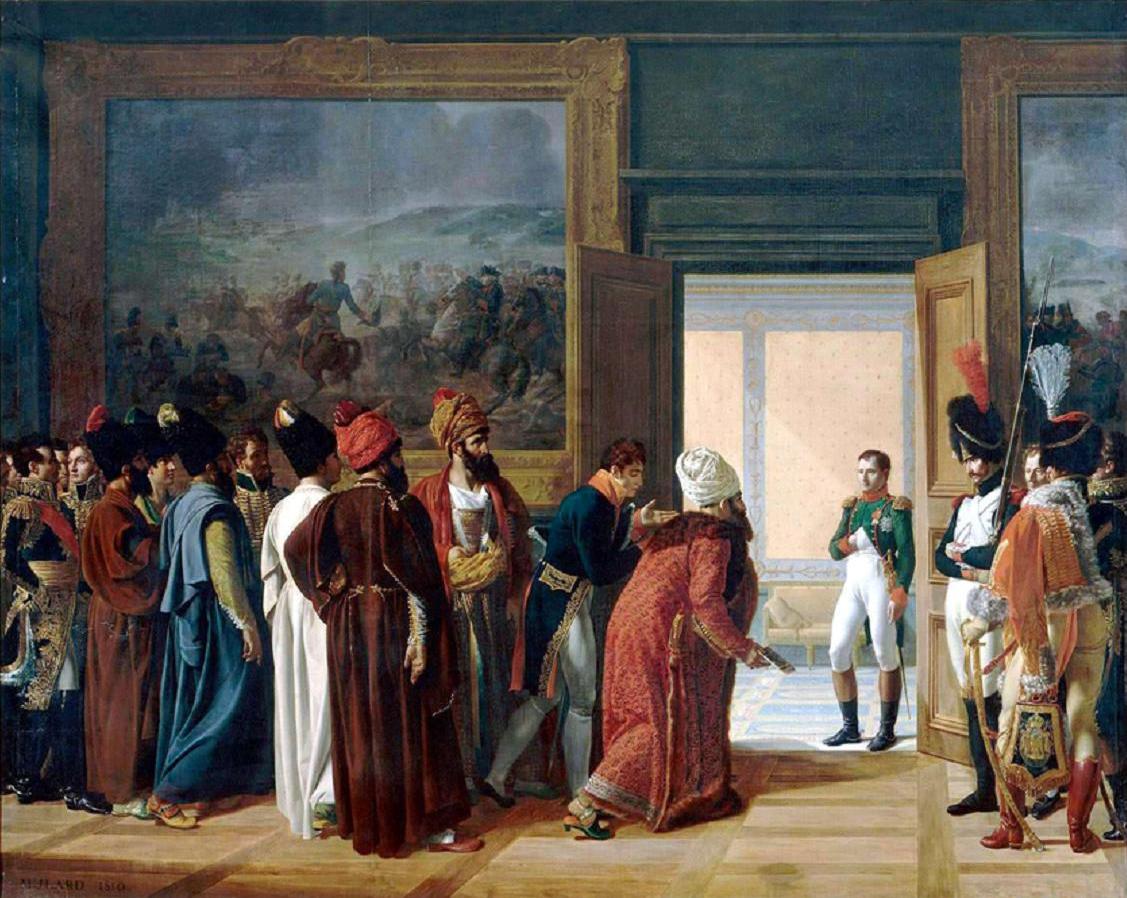In 765 the second Abbasid Caliph Al-Mansur decided to create his new capital to which he gave the Persian name Baghdad. The word بغداد
Baghdad /baġdad/ consists of two words meaning "God-given".
 The first comes from the Old Persian /baga/ "god", itself derived from the Indo-European root
/*bhag-/ "to share, to distribute." It is this root that gave the Sanskrit भाग
/bhāga/ "good fortune, prosperity, lord" extended to भागवत /bhāgavata/ "relative to God" and the origin of the name of one of the essential books of Hinduism, the Bhagavad Gita भगवद्गीता
The first comes from the Old Persian /baga/ "god", itself derived from the Indo-European root
/*bhag-/ "to share, to distribute." It is this root that gave the Sanskrit भाग
/bhāga/ "good fortune, prosperity, lord" extended to भागवत /bhāgavata/ "relative to God" and the origin of the name of one of the essential books of Hinduism, the Bhagavad Gita भगवद्गीता  "singing of the Divine". The word pagoda is certainly the tamil pronunciation of the same भागवत /bhāgavata/ and then designated the goddess Kali. The Portuguese altered the sense to give it to a place of pagan worship.
"singing of the Divine". The word pagoda is certainly the tamil pronunciation of the same भागवत /bhāgavata/ and then designated the goddess Kali. The Portuguese altered the sense to give it to a place of pagan worship.
The Indo-European root /*bhag/ has also produced the Avestan /baẖš-/ from where comes the Persian بخشش /bakhšiš/ "a bribe, a gift" later borrowed by Arabic بقشيش /baqšīš/.
 To illustrate how European languages and the Indo-Iranian languages are close, we can add to this list the Russian word бог /bog/ "god" that is found in other Slavic languages (Croatian, Polish ). It is a component of Slavic family names
To illustrate how European languages and the Indo-Iranian languages are close, we can add to this list the Russian word бог /bog/ "god" that is found in other Slavic languages (Croatian, Polish ). It is a component of Slavic family names
- The name Богдан Bogdan (God-given) carried by several Moldovan kings and currently used by a Ukrainian industrial company, producer of vehicles.
- Surname Богданов Bogdanov (feminin Богданова Bogdanova) is widespread in Russia.
- The name Bogomil Богомил "Dear to God", including one worn by the 10th century Bulgarian priest at the origin of a current Gnostic (Bogomilism) may be the cause of the Cathar movement, and is considered heretical by the Roman Church.
The craftsmen of Baghdad produced a fabric that Italians called Baldacchino in reference to the city known by the Tuscans as Baldacco "Baghdad". From here came the english word baldachin "canopy of state" and french baldaquin.
The second part of the word Baghdad, ie /dad/ "given" is the past participle of the Persian word رارن /dâdan/ "to give", derived from the Indo-European root /*dō/ 'to give'. From here also comes the French word "donner" (latin donar) or Russian дать / dat '/ 'to give', origin of the word дача /dača/  dacha was - before it becomes a "country cottage" - a "donated land" as a reward.
dacha was - before it becomes a "country cottage" - a "donated land" as a reward.

